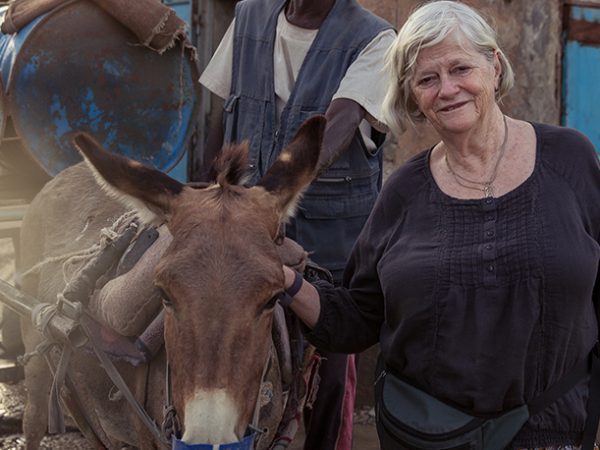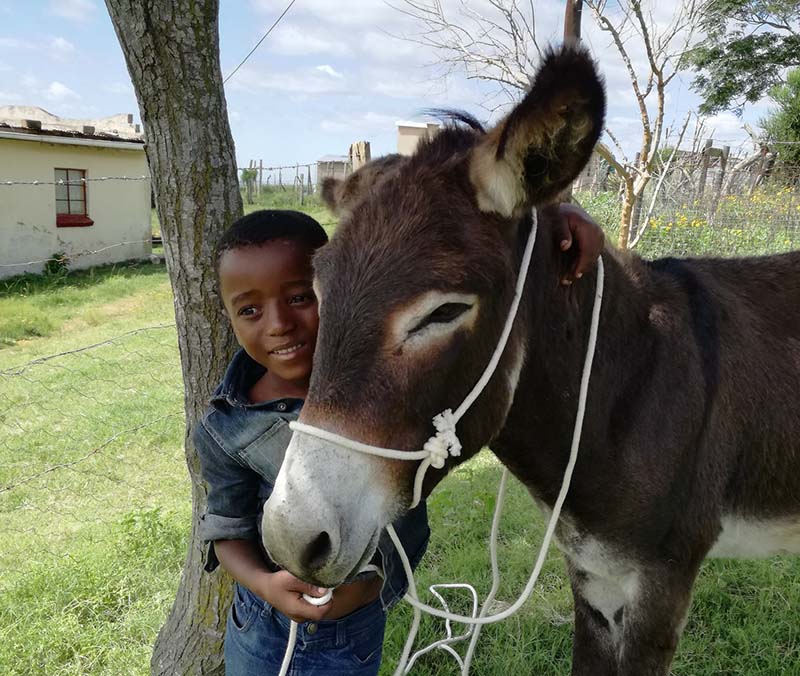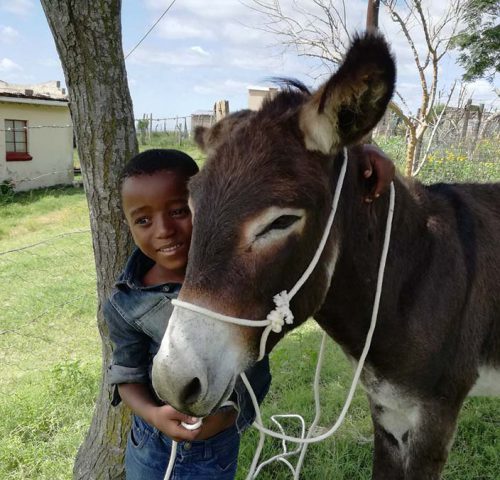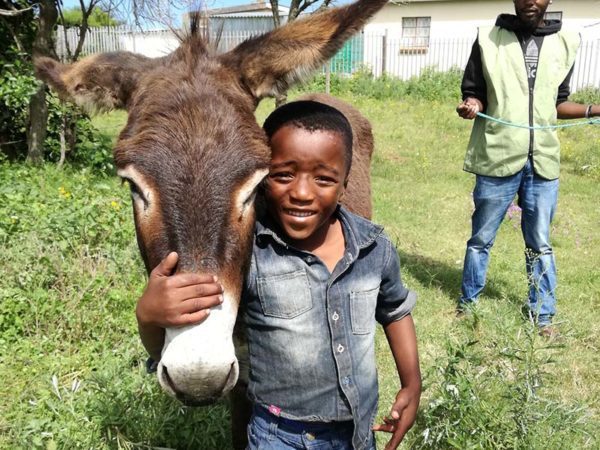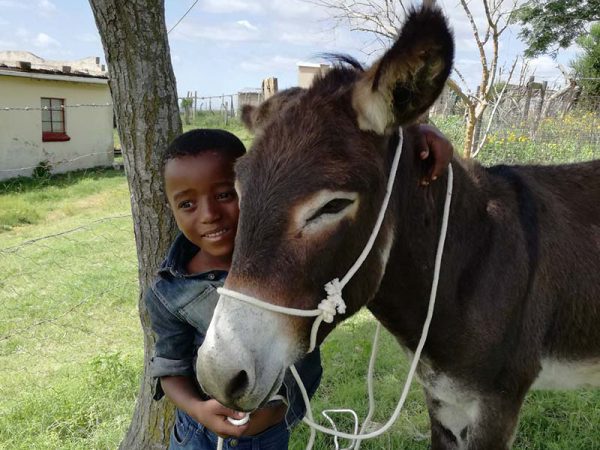Recently, when Mfundo showed Inganathi how to fit a humane harness, Roger stood patiently and allowed the boy to practice his knots. Inganathi communicated with his donkey by holding Roger’s muzzle gently in both hands and emulating the soft sound that donkeys make when they greet.
Children’s education is especially important as young boys traditionally take care of livestock and are also responsible for looking after donkeys for their families. As working donkeys aren’t valued for meat or milk, they can often be overlooked by the communities that rely on them for transportation.
But, fortunately, this is all changing for the better thanks to Working Donkey Champions, who are communicating to children at a young age that all animals are deserving of compassion and respect.
One of Inganathi’s friends, 13-year-old Asive Matole says:
‘I used to be scared of being kicked by donkeys. I sometimes see men that beat donkeys and provide no water when it is very hot. I want to stop them doing this. Now I understand more about donkeys, I think they are beautiful and should be treated kindly.’
There is hope for the future of South Africa’s working donkeys and change is happening thanks to people like Mfundo and other Working Donkey Champions.
